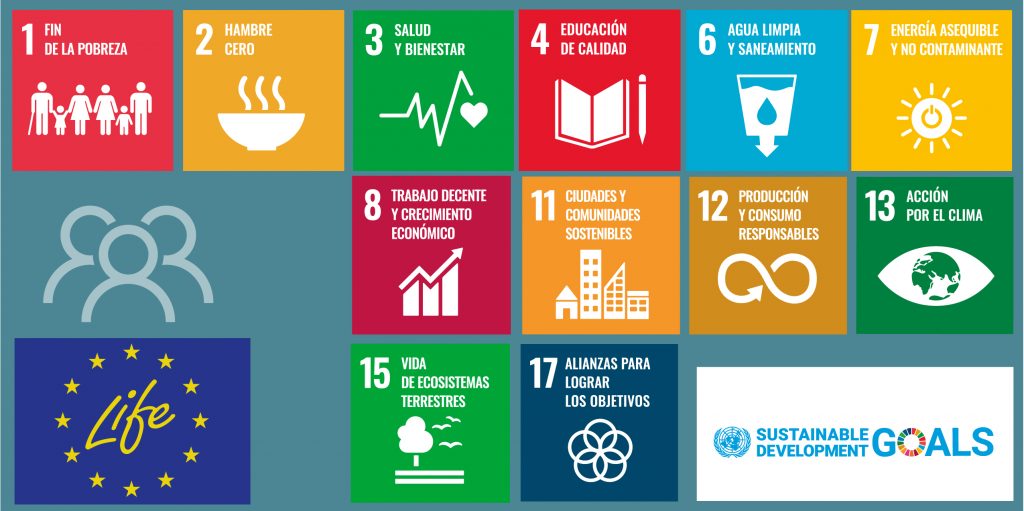 LIFE Resilience, a project co-funded by the European Union (EU) LIFE programme, whose main objective is the prevention of Xylella fastidiosa in high-density olive and almond farms, continues its work to enable farmers to adapt to the new demands of modern agriculture, such as meeting the Sustainable Development Goals (SDGs) of the United Nations.
LIFE Resilience, a project co-funded by the European Union (EU) LIFE programme, whose main objective is the prevention of Xylella fastidiosa in high-density olive and almond farms, continues its work to enable farmers to adapt to the new demands of modern agriculture, such as meeting the Sustainable Development Goals (SDGs) of the United Nations.
This is explained by the project manager, Teresa Carrillo, who states that «in the LIFE Resilience demonstration farms, located in Spain, Portugal and Italy, good sustainable practices that promote the achievement of the SDGs are carried out, such as the use of natural methods for the control of insect vectors, the application of irrigation strategies that reduce water and energy consumption, and the implementation of cover crops that increase carbon sequestration». «This initiative is a clear example of the value of partnerships between companies, farmers’ associations, universities and research centres, which is very much in line with SDG 17,» adds Carrillo.
The SDGs are 17 challenges promoted by the UN with the aim that the 170 countries that make up the UN and territories around the world direct their business strategies to ensure sustainable consumption and production patterns, eradicate poverty, protect the planet and ensure that the whole of society enjoys peace and prosperity. For this reason, a project such as LIFE Resilience cannot be left out of this global commitment and with the work it is doing, it is doing its bit to ensure that the whole olive grove is committed to production systems that respect society, producers and the environment.
LIFE Resilience is very much oriented towards the fulfilment of all the SDGs that apply to the cultivation of woody species, such as SDG 1, SDG 2, SDG 3, SDG 4, SDG 6, SDG 7, SDG 8, SDG 11, SDG 12, SDG 13, SDG 15 and SDG 17.

Specifically, LIFE Resilience contributes to meeting a number of the targets set by the United Nations for each of its SDGs, such as sustainable production and consumption, taking urgent action to combat climate change and its effects, sustainable forest management, combating desertification, halting and reversing land degradation and halting biodiversity loss, among others.
In short, LIFE Resilience is researching to adapt current models to increasingly sustainable food production systems through more resilient agricultural practices. In this way, the project is committed to the planet and society, demonstrating that it has the capacity to apply better practices and sustainable technologies for farmers, increasing biodiversity and resistance to pathogens in their crops without compromising yields.
A project that aims to be a replicable model of best practices for olive, almond and other woody crops, such as citrus and grapevine production systems in Europe, increasing their capacity to adapt to climate change and future epidemics.
